Synthetic System Benchmarks
On this page, we will show synthetic benchmarks, some that test a variety of system use-case scenarios, and others that test specific multi-core and single-core/thread workloads to hone in on performance differences. Note that the graphs are arranged from fastest to slowest. All CPUs are tested in Windows 11 power profile of “Balanced.” Where noted, Intel Arrow Lake CPUs are shown in both Balanced (B) and Best Performance (BP) power profile modes. As you look at the graphs, pay special attention to the AMD Ryzen 7 9800X3D (blue bar) versus AMD Ryzen 7 7800X3D (light gray bar), to see the generational uplift.
PCMark 10 Express
PCMark 10 Express tests workloads as follows: PCMark 10 Express is a benchmark that focuses on basic work tasks. It is a good choice when tendering for PCs for general office use. The PCMark 10 Express benchmark focuses on the performance needs of a typical office worker. It tests Essentials and Productivity.
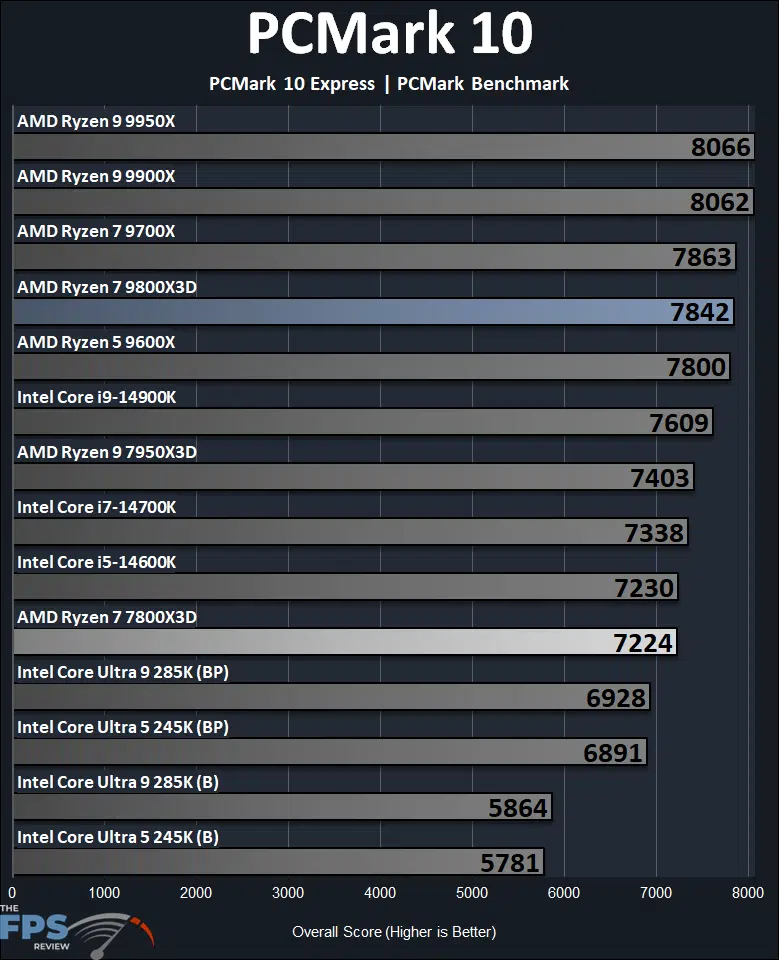
In PCMark 10 Express, we are looking at overall lightly threaded system performance, in common office type of tasks. The new AMD Ryzen 7 9800X3D is 9% faster than the AMD Ryzen 7 7800X3D, providing a decent uplift in common task performance from the previous generation. This puts it at the top of the chart really, and is on par with the AMD Ryzen 7 9700X (non-X3D chip), which is great to see from a productivity standpoint. It’s even faster than the Ryzen 9 7950X3D by 6%.
The Ryzen 7 7800X3D suffered in this area and was slower than the 14600K, but the new 9800X3D is faster than every Intel CPU, period, and it’s not even a high core count part. Compared to the new Intel Core Ultra 9 285K at its best, the AMD Ryzen 7 9800X3D is 13% faster and much cheaper in price.
Geekbench 6
We are using Geekbench version 6.3.0 for our testing. We will show Multi-Core (nT) and Single-Core (1T) performance in separate graphs.
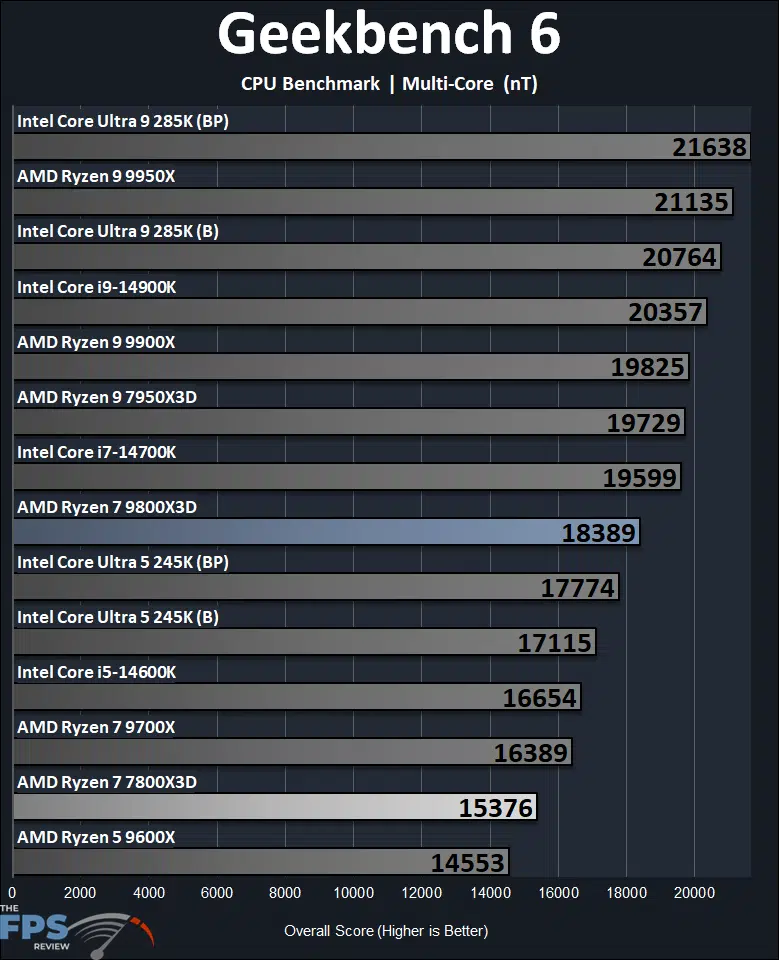
Geekbench 6’s Multi-Core benchmark pushes multi-threaded performance hard. We can see that the new AMD Ryzen 7 9800X3D does have a multi-threaded uplift versus the Ryzen 7 7800X3D, by a whopping 20%! This is a major uplift in performance, generation to generation with the same core/thread count.
The Ryzen 7 7800X3D really suffered in this area as well, as it was next to the lowest on the graph. However, the new AMD Ryzen 7 9800X3D is now placed above the new Intel Core Ultra 5 245K in performance, and above even the AMD Ryzen 7 9700X in multi-threaded performance! That’s right, the AMD Ryzen 7 9800X3D is 12% faster than the Ryzen 7 9700X, which is incredible to see that the new 9800X3D is the new multi-threading 8-core CPU champ in the lineup.
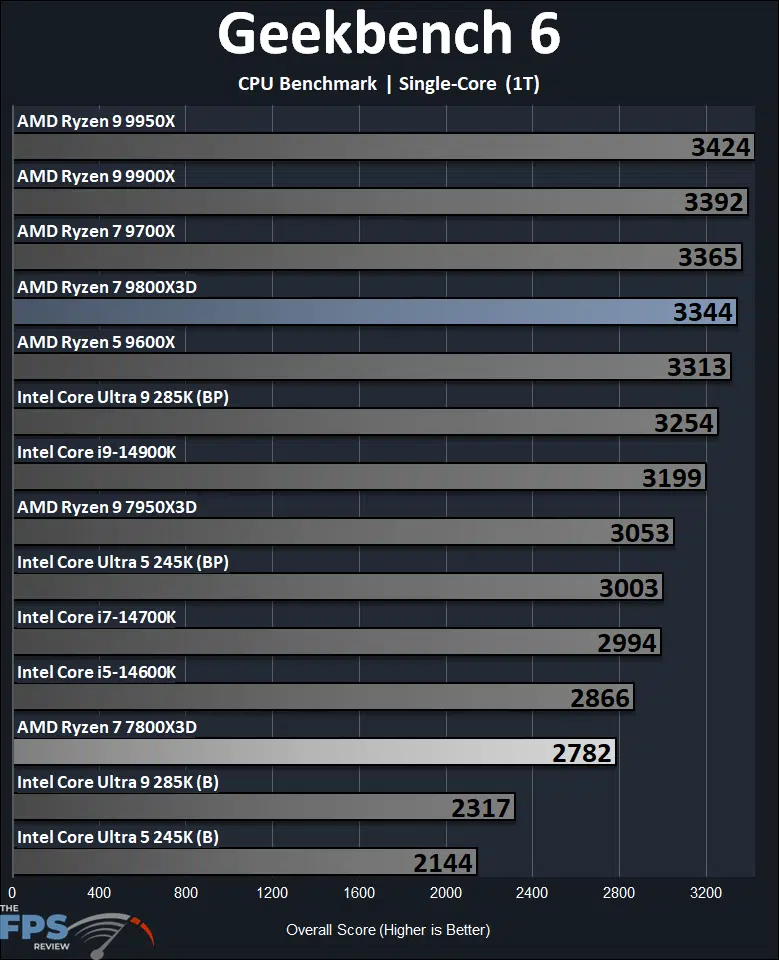
Part of the AMD Ryzen 7 9800X3D’s success is the uplift in single-thread performance, partly due to the Zen 5 architecture and partly due to the frequency increase. The new AMD Ryzen 7 9800X3D ends up being 20% faster in single-threading performance compared to the Ryzen 7 7800X3D, again a pretty major uplift in generational performance. At this level, it puts it on par with the AMD Ryzen 7 9700X and beats every single Intel CPU hands down. The AMD Ryzen 7 9800X3D is even faster than the much more expensive Intel Core Ultra 9 285K!
3DMark CPU Profile
We are testing 3DMark’s CPU Profile which tests Max Thread performance and Single Thread performance, we are reporting both on separate graphs.
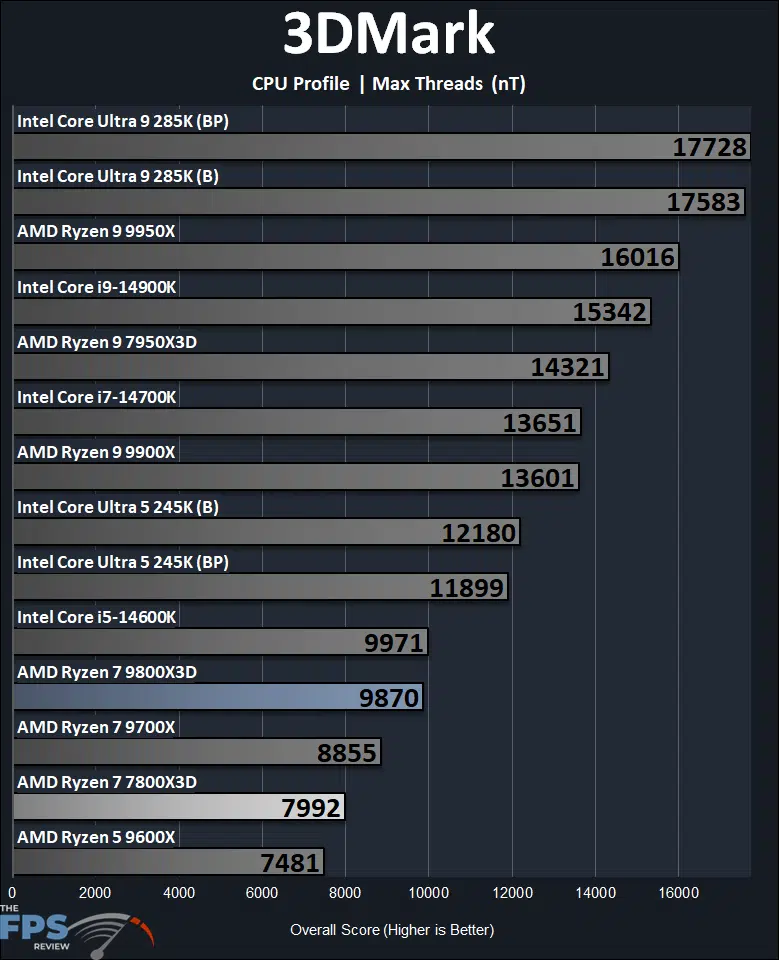
In 3DMark’s “Max Threads” benchmark, we see the advantages of more cores and threads, this highlights those differences from a theoretical perspective. Therefore, the lower-core CPU parts are closer to the bottom, and as such the 8-core AMD Ryzen 7 9800X3D is lined up appropriately. However, what is exciting is that even though it does have the same core/thread count as the Ryzen 7 7800X3D, the AMD Ryzen 7 9800X3D has a MASSIVE 23% performance uplift compared to the 7800X3D!!!!
This cannot be overstated how important this test is for showing the true generational leap of the AMD Ryzen 7 9800X3D. The 7800X3D and 9800X3D have the same core/thread count, but in a very synthetic max-thread load, yep, the AMD Ryzen 7 9800X3D is 23% faster, that’s a difference you’ll notice.
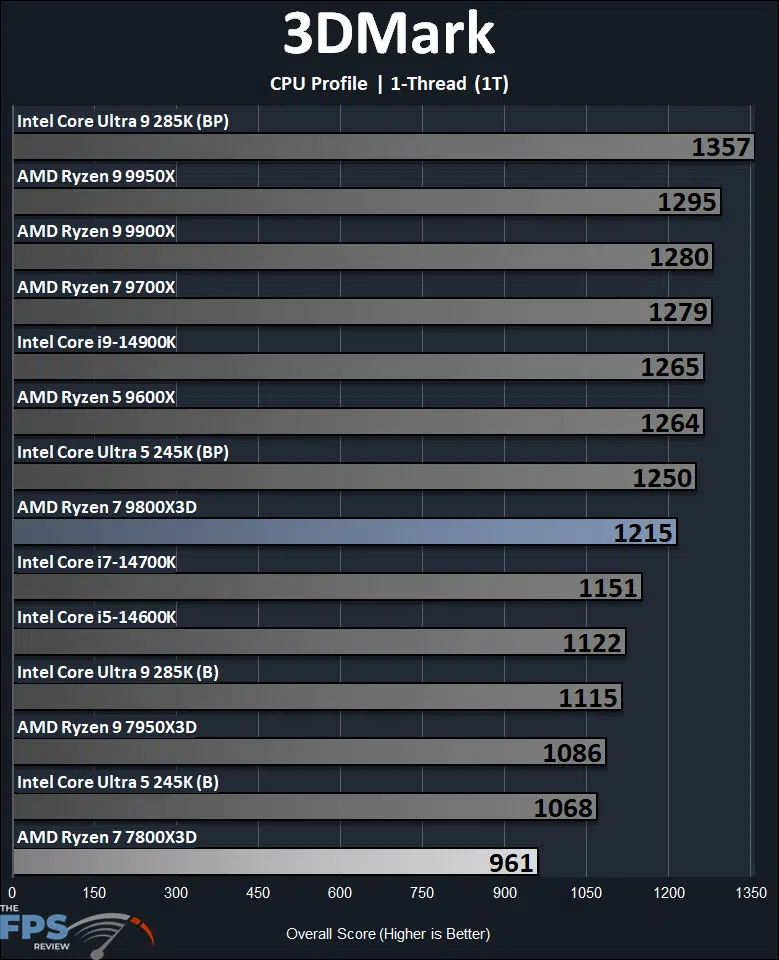
In 3DMark’s 1T (single-thread) benchmark, the AMD Ryzen 7 7800X3D suffered the most. However, the AMD Ryzen 7 9800X3D fixes that problem, the AMD Ryzen 7 9800X3D is a jaw-dropping 26% faster in single-thread performance!!!! This puts it above the 7950X3D, and the 14700K, and lines up quite well with the other Zen 5 CPUs.
